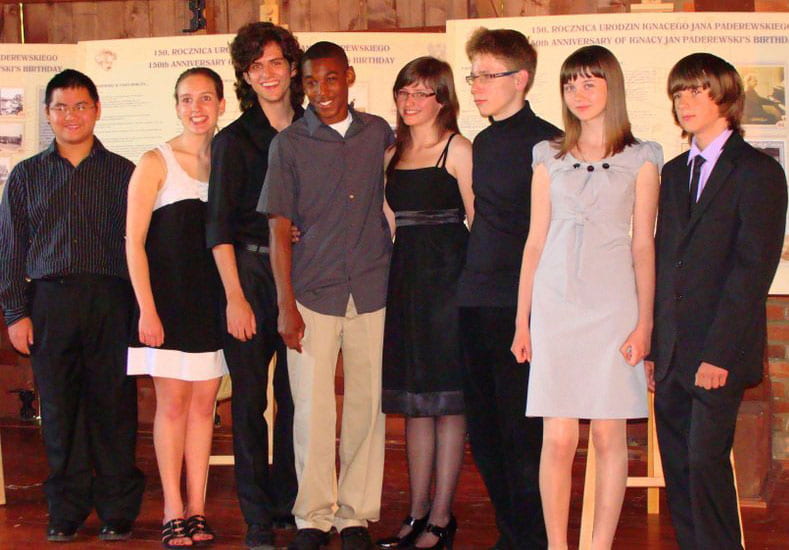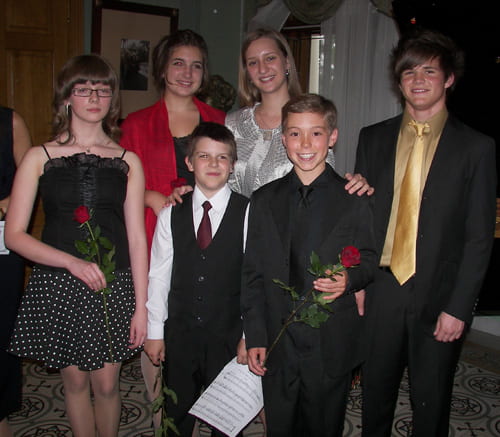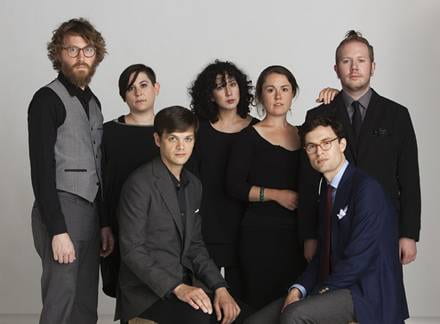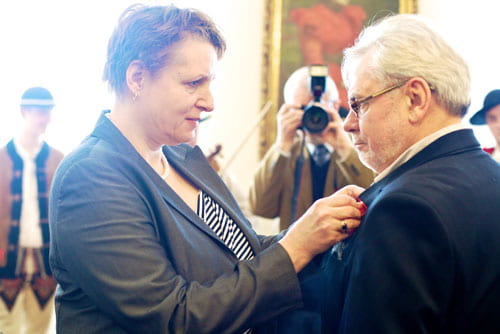Polish Music Newsletter Vol. 19, no. 4
PMC News
Support Summer Music In Kąśna Dolna
Ignacy Jan Paderewski’s wish to establish a music program for his beloved Central Coast in California continues apace with the Paderewski Festival in Paso Robles Youth Exchange Program taking place again this summer. Two students—winners of the Paderewski Youth Piano Competition held annually in conjunction with the Festival—will be in Poland between June 22 and July 4 for a program of piano workshops, master classes, chamber music rehearsals and performances.
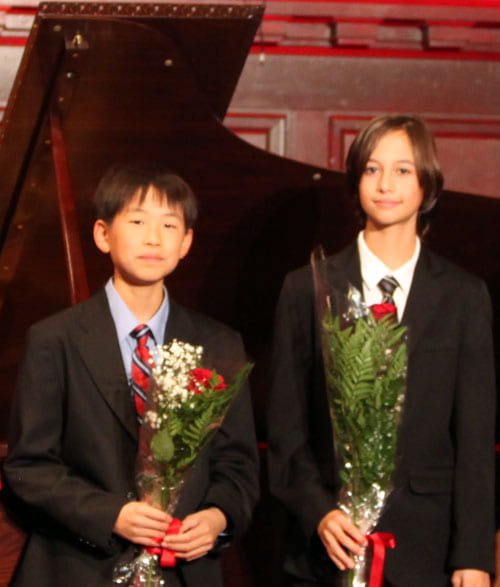 Pictured at left, Daniel Ha (13) from Arroyo Grande and Jack Raventos (13) from Orcutt will travel to Poland accompanied by their parent-chaperone to participate in this year’s exchange program—learn more about Daniel Ha and Jack Raventos here. Held in Kąśna Dolna—Paderewski’s former estate in southern Poland—the Youth Exchange Program brings young pianists from California, the Province of Tarnów, and the City of Khmilnyk in the Ukraine together for music-making and concerts in Paderewski’s charming manor house. In addition to Daniel Ha and Jack Raventos, this year’s participants will also include Michał Niedbała (12) and Paulina Ostrowska (16) from Tarnów as well as Nazar Kozlyuk (16) and Olha Pokhvata (14) from Khmilnyk, the nearest town to Paderewski’s birthplace of Kuryłówka.
Pictured at left, Daniel Ha (13) from Arroyo Grande and Jack Raventos (13) from Orcutt will travel to Poland accompanied by their parent-chaperone to participate in this year’s exchange program—learn more about Daniel Ha and Jack Raventos here. Held in Kąśna Dolna—Paderewski’s former estate in southern Poland—the Youth Exchange Program brings young pianists from California, the Province of Tarnów, and the City of Khmilnyk in the Ukraine together for music-making and concerts in Paderewski’s charming manor house. In addition to Daniel Ha and Jack Raventos, this year’s participants will also include Michał Niedbała (12) and Paulina Ostrowska (16) from Tarnów as well as Nazar Kozlyuk (16) and Olha Pokhvata (14) from Khmilnyk, the nearest town to Paderewski’s birthplace of Kuryłówka.
The first installment of the Youth Exchange Program took place in June of 2009, when Lindsay Reed, Matt Fauria and Rory McClish travelled to Poland. A year later, two Polish pianists—Barbara Doroszuk and Marcin Michalski—arrived to perform during the Paderewski Festival in Paso Robles. Then in 2011, Maddie Anderson, Jordan Adams and Evan Lin went to Poland, followed by Marcin Krysa, Robert Maciejowski and Ula Barnaś visiting California in 2012. In each case, the young musicians had already known each other from their time together at the Kąśna Dolna and were delighted to renew the friendships.
The final concert of this year’s program will be held in Paderewski’s manor house on June 29. In addition to performances by this year’s participants, the program will also feature a recital by cellist Lars Hoefs and pianist Marek Zebrowski, who will jointly conduct workshops and master classes for the students. The same concert program will be given in the nearby town of Czchów on June 30 and at the Jagiellonian University in Kraków on July 2.
Co-organized by the Paderewski Festival in Paso Robles and the Province of Tarnów, on the American side this program is fully financed by the Paderewski Festival. The Festival covers the cost of travel and lodgings in Kraków for the two students and the chaperone. The Festival’s partners in Poland—the Supervisor of the Province of Tarnów and the Paderewski Centre Tarnów/Kąśna Dolna—provide room and board, cover the cost of tuition, and organize several sightseeing trips for the visitors from California and the Ukraine.
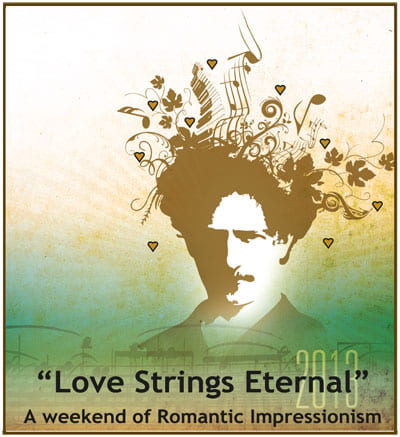 In order to fund the Youth Exchange Program in Poland, the Paderewski Festival holds a series of annual fundraising concerts. Held under the motto “Love Strings Eternal,” this spring’s three special events will feature pianist Marek Zebrowski with the Upstream II Ensemble in a romantic program of piano quintets by Johann Nepomuk Hummel and Claude Debussy, as well as a premiere of a specially arranged work by Paderewski for that particular ensemble. Upstream II is comprised of Jason Issokson – violin, Deanna Lynn – viola, Ye Lin (Stella) Cho – cello, and Harish Kumar – double bass. Held on Friday April 26 at an exclusive residence in Beverly Hills, the first of these concerts will also feature an evening of gourmet appetizers and select Paso Robles wines. The other two fundraisers are scheduled for April 27 and 28 in Paso Robles. The Saturday afternoon tea held at a stunning modern residence on Paso’s Westside begins at 4 p.m., while the Sunday fundraiser held at the picturesque Cass Winery begins at 2 p.m.
In order to fund the Youth Exchange Program in Poland, the Paderewski Festival holds a series of annual fundraising concerts. Held under the motto “Love Strings Eternal,” this spring’s three special events will feature pianist Marek Zebrowski with the Upstream II Ensemble in a romantic program of piano quintets by Johann Nepomuk Hummel and Claude Debussy, as well as a premiere of a specially arranged work by Paderewski for that particular ensemble. Upstream II is comprised of Jason Issokson – violin, Deanna Lynn – viola, Ye Lin (Stella) Cho – cello, and Harish Kumar – double bass. Held on Friday April 26 at an exclusive residence in Beverly Hills, the first of these concerts will also feature an evening of gourmet appetizers and select Paso Robles wines. The other two fundraisers are scheduled for April 27 and 28 in Paso Robles. The Saturday afternoon tea held at a stunning modern residence on Paso’s Westside begins at 4 p.m., while the Sunday fundraiser held at the picturesque Cass Winery begins at 2 p.m.
All proceeds will directly benefit this year’s Youth Exchange Program and are tax deductible. For more information on these events please visit the Paderewski Festival website (www.paderewskifest.com), where tickets for these events may also be purchased.
FRIDAY, APRIL 26, 2013 | 7:30 P.M.
Paderewski Festival Youth Exchange Fundraiser I – Los Angeles
Concert featuring the Upstream II ensemble with Marek Zebrowski & a Paso Robles wine reception with hors d’oeuvres and dessert
Kołodziey Residence, Beverly Hills
Tickets: $75 per person – purchase here
SATURDAY, APRIL 27, 2013 | 4:00 P.M.
Paderewski Festival Youth Exchange Fundraiser II – Paso Robles
Concert featuring the Upstream II ensemble with Marek Zebrowski & afternoon tea with sparkling Paso Robles wine
Riding Residence, Paso Robles
Tickets: $75 per person – purchase here
SUNDAY, APRIL 28, 2013 | 2:00 P.M.
Paderewski Festival Youth Exchange Fundraiser III – Paso Robles
Concert featuring the Upstream II ensemble with Marek Zebrowski & no host wine reception with light appetizers
Cass Winery Barrel Room, Paso Robles
Tickets: $25 per person – purchase here
Polish Modernism And Możdżer
Developments in Polish music since 1945 was the main subject of an all-day conference, “Sounds from Behind the Iron Curtain: Polish Music after World War II,” organized by the PMC and held at USC on April 6. Several scholars from across the United States and Poland participated— Renata Pasternak-Mazur (Rutgers University), Kurt Nelson (New York University), Lisa Cooper Vest (Indiana University, Bloomington), Cindy Bylander, Andrea Bohlman (University of Pennsylvania), Paulina Piędzia Colón (Graduate Center, CUNY), and Marta Marciniak (University at Buffalo, SUNY)—delivering their papers in person or via Skype. Several fascinating subject areas were examined, including the influence of socialist realism on the Polish musical scene in the 1950s, the reception of Western composers in Poland, Polish music during the transition years of the 1970s and the 1980s, and the influence of punk music on the political and cultural climate during the Cold War era.
Musicologists Ewelina Boczkowska of Youngstown State University and Eva Sobolevski of L.A. Opera developed the concept of the conference and organized the recruitment of scholars. Maria Peryt, a musicologist from the Chopin University in Warsaw who was visiting Los Angeles, provided additional assistance and contacts to media partners in Poland.
If you were unable to attend the conference and would like to view the contents, please visit: capture.usc.edu/Mediasite/Play/e2ff293631924c968385bd809aa6b2561d.
Following the conference, Leszek Możdżer gave a brilliant and mesmerizing solo recital at USC’s Alfred Newman Recital Hall. Celebrating the centenary of Witold Lutosławski, he opened his program with a bravura rendition of Lutosławski’s Second Etude for Piano and followed with his unique take on music by several other contemporary Polish composers as well as Chopin. The medium of jazz proved a perfect accompaniment and a fitting close to the conference, since Polish jazz with its embrace of the avant-garde strongly shaped the artistic response to the political situation in Poland in the post-World War II era. The concert was co-sponsored by the Consulate General of the Republic of Poland in Los Angeles.
 In addition to the concert and the conference, selected manuscripts by Witold Lutosławski, Tadeusz Baird, Joanna Bruzdowicz, Krzysztof Meyer, and Krzysztof Penderecki were on display at the Newman corridor. Culled from the unprecedented collection of manuscripts given to the Polish Music Center by the composers and their families, these precious documents are a terrific object for further study and analysis of what made Polish music of the post-World War II era such a cherished and world-famous phenomenon.
In addition to the concert and the conference, selected manuscripts by Witold Lutosławski, Tadeusz Baird, Joanna Bruzdowicz, Krzysztof Meyer, and Krzysztof Penderecki were on display at the Newman corridor. Culled from the unprecedented collection of manuscripts given to the Polish Music Center by the composers and their families, these precious documents are a terrific object for further study and analysis of what made Polish music of the post-World War II era such a cherished and world-famous phenomenon.
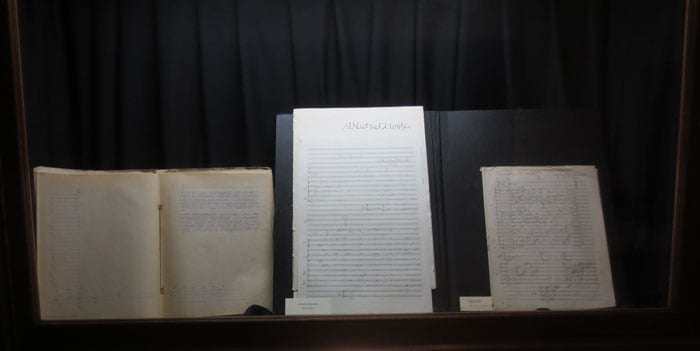
Visiting Scholars at PMC in March
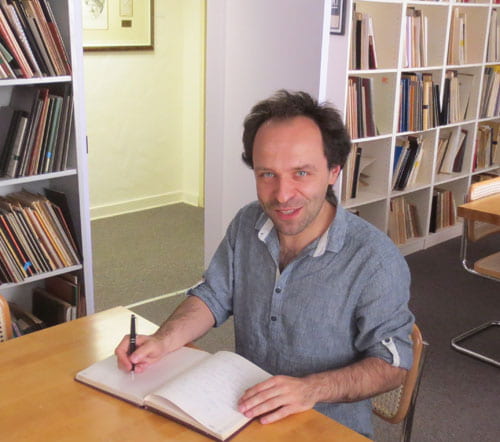
Two scholars have recently visited the Polish Music Center for extensive research of our resources and creative inspiration. Tomasz Jakub Opałka, a 2011 graduate in composition from the Chopin Music Academy in Warsaw, is a rapidly rising talent on the European music scene. As a composer, he is primarily interested in symphonic music and film scores. Invited to Los Angeles to work with film composer Chris Young and the Tilden House Residency Program during the first quarter of 2013, Mr. Opałka frequented the PMC library to study scores by contemporary Polish composers. Inspired by the surroundings, he also worked on several commissioned concert works scheduled to be premiered in the coming months while at the PMC.
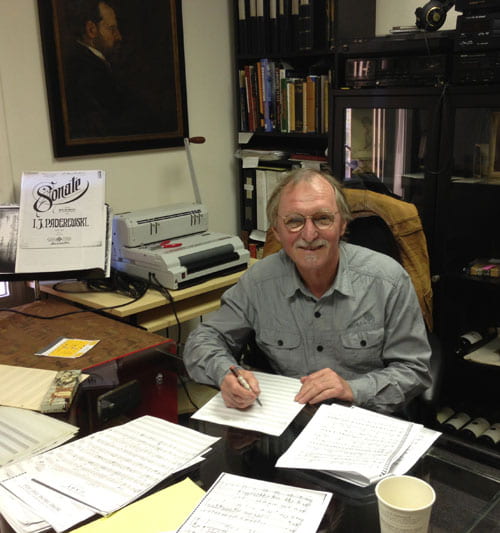 Jan Jarczyk, a well-known jazz musician, currently lives and teaches at McGill University in Montreal, Canada. As a pianist, composer and arranger, over the past three decades Mr. Jarczyk has recorded and toured extensively around the world. Accompanied on his Los Angeles visit by his wife, Danielle, Mr. Jarczyk came to the Polish Music Center to research film and stage music by Bronisław Kaper and Henryk Wars (Henry Vars). A number of rare film scores and sheet music by Kaper, as well as the Henry Vars manuscripts and printed music held at PMC, will form the basis of Jarczyk’s new arrangements for jazz trio and quartet. Tours with the program as well as recordings of this material are planned for 2014 and will certainly be covered in the future issues of this Newsletter.
Jan Jarczyk, a well-known jazz musician, currently lives and teaches at McGill University in Montreal, Canada. As a pianist, composer and arranger, over the past three decades Mr. Jarczyk has recorded and toured extensively around the world. Accompanied on his Los Angeles visit by his wife, Danielle, Mr. Jarczyk came to the Polish Music Center to research film and stage music by Bronisław Kaper and Henryk Wars (Henry Vars). A number of rare film scores and sheet music by Kaper, as well as the Henry Vars manuscripts and printed music held at PMC, will form the basis of Jarczyk’s new arrangements for jazz trio and quartet. Tours with the program as well as recordings of this material are planned for 2014 and will certainly be covered in the future issues of this Newsletter.
News
Mykietyn World Premiere
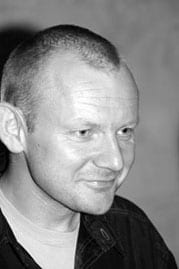 On March 24, the Ars Musica International Contemporary Music Festival in Brussels featured a world premiere of Paweł Mykietyn’s new composition, Wax Music, at La Raffinerie in Charleroi Danses. The work was commissioned in 2012 by the National Audio-Visual Institute [NINA], with additional assistance from the Polish Institute in Brussels. The Polish premiere of this work will take place during the 2013 Warsaw Autumn Festival.
On March 24, the Ars Musica International Contemporary Music Festival in Brussels featured a world premiere of Paweł Mykietyn’s new composition, Wax Music, at La Raffinerie in Charleroi Danses. The work was commissioned in 2012 by the National Audio-Visual Institute [NINA], with additional assistance from the Polish Institute in Brussels. The Polish premiere of this work will take place during the 2013 Warsaw Autumn Festival.
Composed in 2012, Mykietyn’s unique piece marks the coming together of the past and the contemporary, via a crisscross game of live music and sounds reproduced on stage as well as through the difference in the types of recordings. It pays homage to wax cylinders, invented by Thomas Edison towards the end of the 19th century for the use of recording sound. During the past year, twelve wax cylinders were used for a 2-minute 15-second recording of electronic-generated sounds. These sounds were reproduced at the premiere by two phonographs, controlled by Tobias Valentine Weber, and synchronized with the score. The wax cylinders’ sounds were accompanied by a piano performance, given by Barbara Drążkowska.
According to the Polish Institute in Brussels:
The story of Wax Music started with a meeting between the composer and Adelajda Merchán-Drążkowska, an ethnomusicologist who worked at the Berlin Ethnologisches Museum, and her sister Barbara, a pianist by trade. The first gave him the idea for a concept taking up the ephemeral nature of music generated by a gramophone, the acoustic style of a piano and electronic composition. The idea then took root with Paweł Mykietyn that the purely mechanical nature of the gramophone, be this at the recording stage or that of retransmission, needed to include ‘a non-existent acoustic layer, impossible to generate at the time’, in the words of the composer, who took it upon himself to create, with a computer, sinusoidal sounds and combine them before transferring them onto wax rollers. The first stage took place at Warsaw University of Music’s Studio for Electronic and Digital Music (in collaboration with Krzysztof Czaja), whilst the second took place at Berlin’s Ethnographic Museum (working alongside Tobias Weber). To the part of wax cylinders, Paweł Mykietyn added a part for piano, composed with Barbara Drążkowska in mind. The result is thus a dialogue amongst an instrument, technology and history.
There will be a limited number of Wax Music performances. Each time, the recording on cylinders will have lost some of its original character due to the very fact that the material deteriorates. Two cylinders will be used at the same time (which give rise – perhaps – to the syncronisation of the devices being altered). Since each cylinder can contain 2 minutes 15 seconds of music, 2 x 12 cylinders will be needed for the whole piece, which lasts around 25 minutes. Each performance will thus be a ‘one-off’. Each time, the dialogue between the piano and the gramophones will be different.
In celebration of this talented young composer and his premiere, NINA hosted an entire Weekend with music by Paweł Mykietyn, starting on March 22. The intent is to familiarize audiences with a varied selection of his compositions so that listeners may experience the diversity, the fascinating variables, and the continuous experimentation and exploration that are present in each of Mykietyn’s successive works.
From the website of Sacrum Profanum:
[O]n this occasion, works by Mykietyn, interviews with the composer and a number of reportages, including a report on rehearsals for the world premiere of Wax Music, will be presented and recollected. […]
The Weekend with music by Paweł Mykietyn will be an opportunity to listen to and watch unique performances of the composer’s works. These include, among others, …Choć doleciał Dedal…. (…Although Daedalus reached…) – Mykietyn’s early piece written in 1990 for the band in which he performed as a clarinettist. Another piece, 3 for 13, is dedicated to the late music critic Andrzej Chłopecki, and the title reflects the structure of the song, which consists of three parts to be performed by 13 musicians. Two other pieces – Sonety Szekspira (Shakespeare’s Sonnets) and Ładnienie (Becoming Fine), which contains a poem by Marcin Świetlicki – were released on the album Speechless Song. Ładnienie is a piece for baritone, microtonally-tuned harpsichord and string quartet where the second violin and the cello are retuned by a quarter-tone in comparison with other strings. The last piece from this album – Sonata – is dedicated to the excellent cellist Andrzej Bauer.
Traditional instruments imitating percussion sounds, beats and syncopations, and Jadwiga Rappé chanting the street poetry of the young actor Mateusz Kościukiewicz can be heard in Symphony No. 3, which was commissioned by NInA on the occasion of the Inauguration of Poland’s Presidency in the Council of the European Union. You can listen to this Symphony in the version performed by Jadwiga Rappé and the excellent AUKSO Orchestra conducted by Marek Moś.
Another composition that will be made available on this occasion is Pasja według świętego Marka (The Passion According to St. Mark). ‘Although Mykietyn’s Passion tells the story of the last hours of Christ’s life described by the Mark the Evangelist and refers to prophetic sentences from the Book of Isaiah, it is not actually a religious work. … weeping and howling with pain and with delight, which is expressive and embarrassing, is the most dramatic experience of the work and, at the same time, the key to its understanding. It is at this moment that we finally understand that Christ and His suffering are only a pretext for a story of human fate – it is not a tale about Saviour God, but man on Earth.’ (Ewa Szczecińska, Obywatel Chrystus, dwutygodnik.com). […]
Learn more about this event and listen to recordings at www.nina.gov.pl.
[Sources: pwm.com.pl, culturepolonaise.eu, nina.gov.pl, sacrumprofanum.com]
Szymański Premiere
 On April 20, the National Opera in Warsaw presents the world premiere production of its commission Qudsja Zaher—an opera composed by the master of contemporary music, Paweł Szymański. Qudsja Zaher features a libretto by documentary filmmaker Maciej J. Drygas taken from an Afghan immigrant’s death and afterlife, and stage design and direction by the eminent Lithuanian director Eimantus Nekrošius. Soloists are: Olga Pasiecznik and Katarzyna Trylnik (Qudsja Zaher), Andrzej Niemirski (Teacher – actor), and Damian Konieczek (Carrier).
On April 20, the National Opera in Warsaw presents the world premiere production of its commission Qudsja Zaher—an opera composed by the master of contemporary music, Paweł Szymański. Qudsja Zaher features a libretto by documentary filmmaker Maciej J. Drygas taken from an Afghan immigrant’s death and afterlife, and stage design and direction by the eminent Lithuanian director Eimantus Nekrošius. Soloists are: Olga Pasiecznik and Katarzyna Trylnik (Qudsja Zaher), Andrzej Niemirski (Teacher – actor), and Damian Konieczek (Carrier).
According to the website of the National Opera:
The left brain hemisphere is said to be ruled by logic, the right one by emotions and intuition. Paweł Szymański’s Qudsja Zaher speaks directly to our right hemispheres. This is the first Polish eschatological opera with an after-life plot. A concept worthy of Stockhausen’s The Song of Praise of the Three Youths in a Burning Furnace. But Maciej J. Drygas’ libretto paints an underwater netherworld, a harbour of the forgotten drowned humans. The Afghan woman Qudsja, who has offered her life for a group of refugees, is waiting for a promise of eternity in such a limbo – pierced by the atonal sobbing of the dead and the tought [sic] recitatives of the guardians of childhood memories. But before she is granted eternity she will discover her fate in the story of a Viking tribe woman from a thousand years ago. This is so because time takes away from the victims of history’s cruelties even their identity and turns them into shadows.
April 20-24, 2013 | times vary
Premiere run of Qudsja Zaher by Paweł Szymański
Teatr Wielki – Moniuszko Auditorium
Plac Teatralny 1, 00-950 Warszawa
Tickets and details: teatrwielki.pl
[Sources: culture.pl, teatrwielki.pl]
Michael Gatonska Premiere
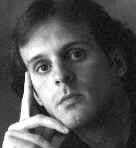 On Wednesday, April 10, the premiere of Michael Gatonska’s new composition Shinrin-yoku [Forest Bathing] (2013) will take place at Roulette in Brooklyn, NY at 8:00 pm. Composed for the violinist Mari Kimura—a first for Gatonska as a composer—the Shinrin-yoku project involves the Augmented Violin System (developed at IRCAM), an Interactive Computer System, and an Interactive Audio/Visual component that will manipulate images that I have snapped hiking in various places. The title is a Japanese word that involves visiting a forest for relaxation and recreation while breathing in wood essential oils regarded as being similar to natural aromatherapy—a recognized relaxation and/or stress management activity in Japan. The concert program will also include Poly-Monologue (2013) by Mari Kimura and Kyoko Kitamura.
On Wednesday, April 10, the premiere of Michael Gatonska’s new composition Shinrin-yoku [Forest Bathing] (2013) will take place at Roulette in Brooklyn, NY at 8:00 pm. Composed for the violinist Mari Kimura—a first for Gatonska as a composer—the Shinrin-yoku project involves the Augmented Violin System (developed at IRCAM), an Interactive Computer System, and an Interactive Audio/Visual component that will manipulate images that I have snapped hiking in various places. The title is a Japanese word that involves visiting a forest for relaxation and recreation while breathing in wood essential oils regarded as being similar to natural aromatherapy—a recognized relaxation and/or stress management activity in Japan. The concert program will also include Poly-Monologue (2013) by Mari Kimura and Kyoko Kitamura.
Michael Gatonska studied composition with Krzystof Penderecki, Marek Stachowski, and Zbigniew Bujarski at the Academy of Music in Kraków, Poland, and with Elias Tanenbaum at the Manhattan School of Music. He has also been a professor on the Faculty of Music at the Pontificia Universidad Javeriana in Bogota, Colombia. His music has been performed by the Minnesota Orchestra, the Cabrillo Festival Orchestra, the American Composers Orchestra, the Pacific Symphony, the Hartford Symphony, the Krakow Radio Symphony Orchestra, the Civic Orchestra of Chicago, the Ossia Symphony Orchestra, SONYC, the Chicago Chamber Musicians, the Talea Ensemble, LOCRIAN chamber players, string quartet DAFO (Poland), and the HSO Violoncello Quartet among others. His music has been performed around the world including at the Krakow International Composers Festival, the Teagu Festival of Contemporary Music (South Korea), the Festival Internacional de Musica Contemporanea (Bogota, Colombia), the Cabrillo Festival of Contemporary Music, the Tribeca New Music Festival, the MATA Festival, Piano Spheres—Exploring Music of Our Time, the CSN New Music Festival, the Kosciuszko Foundation Chamber Music Series, REAL Art Ways, and at the New Britain Museum of American Art.
Continue reading Gatonska’s biography at www.michaelgatonska.com.
Wednesday, April 10, 2013 | 8:00 pm
World Premiere of Shinrin-yoku by Michael Gatonska
Roulette – 509 Atlantic Avenue, Brooklyn, NY 11217
Tickets: General Admission: $15, Members/Students/Seniors: $10
Info: (917) 267-0363, roulette@roulette.org
[Sources: press release, michaelgatonska.com]
Łukaszewski Premiere In Cologne
 On April 1, Paweł Łukaszewski‘s new work Resurrectio—an oratorio for soprano, tenor, baritone, mixed choir, organ and orchestra—was premiered at the Festa Paschalia festival in the St. Pantaleon Basilica in Cologne, Germany. The work was performed by Neues Rheinisches Kammerorchester Köln conducted by Richard Mailänder with soloists Susanna Martin (soprano), Manuel König (tenor), Thilo Dahlmann (baritone) and the Figuralchor Köln.
On April 1, Paweł Łukaszewski‘s new work Resurrectio—an oratorio for soprano, tenor, baritone, mixed choir, organ and orchestra—was premiered at the Festa Paschalia festival in the St. Pantaleon Basilica in Cologne, Germany. The work was performed by Neues Rheinisches Kammerorchester Köln conducted by Richard Mailänder with soloists Susanna Martin (soprano), Manuel König (tenor), Thilo Dahlmann (baritone) and the Figuralchor Köln.
According to Paweł Łukaszewski:
Resurrectio is a certain continuation of Via Crucis. The last station of the cross is the resurrection, so in a sense it was an anticipation of the event. My intention was to present all the events that occur after the Resurrection. I thought the whole should be like an icon, which is why the first, instrumental section is called Eicón, or Icon. Then I searched the texts of the Gospels describing these events—they are the parts Sepulcrum, Noli me tangere, Emmaus, Thomas and Galilea, and other liturgical texts, not necessarily evangelical. Hence, the presence of the Easter hymn Salve festa dies, and the sequence Victimae paschali lauds could also not be omitted. An important role is also played by Lumen Christi, the Light of Christ—this is part of the Liturgy of Holy Saturday, when everyone meets outside the church and the priest repeats exactly this call three times. For me this was the starting point of the whole story. And the last part, Christus heri et hodie—Christ yesterday and today—is a summary of the meaning of the whole work, underlining the most important message, and in the musical layer there a reference back to the beginning movement, Eicón.
[Sources: pwm.com.pl, lukaszewski.org.uk]
Kazimierz Serocki 13th International Composers’ Competition
Organized by the Polish Society for Contemporary Music—the official Polish Section of the International Society for Contemporary Music [ISCM – UNESCO]—the Kazimierz Serocki International Composers’ Competition is open to composers of all ages and nationalities. Deadline for entries in this year’s edition: August 15th, 2013
Only compositions for chamber ensemble of 3 to 5 instruments, without conductor, will be considered. Possible instruments: 1 flute, 1 oboe, 1 clarinet, percussion (1 performer), 1 piano, 1 accordion, 2 violins, 1 viola, 1 cello (use of tape is allowed). Use of live electronics is not permitted. The duration of the piece must be from 10 to 16 minutes.
More than one score per composer is permitted, and it is possible to submit works already performed and/or awarded in other competitions, excluding compositions already published.
For more details and submission information, visit: www.ptmw.art.pl.
[Source: ptmw.art.pl]
Orchestra Of Exiles
“Huberman, a child prodigy who wowed Brahms at a performance of his violin concerto in 1896, not only founded the Palestine Philharmonic Orchestra — now called the Israel Philharmonic — but also saved some one thousand Jews from Nazi extermination. That’s approximately the same number of Jews that Schindler saved. […] Huberman’s mission is a deeply moving story that must be told.”
Jason Victor Serinus, SF Classical Voice, April 2013
 Directed by Josh Aronson, Orchestra of Exiles is a documentary film that chronicles the efforts of the great Polish violinist Bronislaw Huberman to get Jewish musicians out of Europe and to Palestine in the mid-1930s. The film has been screening at festivals around the country and will be shown on TV in San Francisco and New York in April. KQED-SF will air it Monday, April 15, at 6:30 a.m. and 12:30 p.m.
Directed by Josh Aronson, Orchestra of Exiles is a documentary film that chronicles the efforts of the great Polish violinist Bronislaw Huberman to get Jewish musicians out of Europe and to Palestine in the mid-1930s. The film has been screening at festivals around the country and will be shown on TV in San Francisco and New York in April. KQED-SF will air it Monday, April 15, at 6:30 a.m. and 12:30 p.m.
From www.aronsonfilms.com:
In the early 1930s Hitler began forcing Jewish musicians out of orchestras across central Europe; never before had so many experienced players been jobless simultaneously. The Nazis unwittingly presented a unique opportunity and with the short window of time still available, Huberman dedicated himself to fulfilling a dream.
The struggle to create the Palestine Symphony is a densely layered story with a range of key characters that could hardly be more diverse. Among them: a high Nazi official, Goebbels; renowned conductors, Furtwangler and Toscanini; a future head of state, Chaim Weizmann; and the families of victimized Jewish musicians who made up the ranks of orchestras across central Europe. Even the most famous Jew in the world played a role; a man who, among other pursuits, was an amateur violinist who liked to read music with Huberman – Albert Einstein. […]
The story of the founding of the Palestine Orchestra is our narrative story, but the film explores some profound psychological questions: How did living through WW I and the Depression change Huberman from a self-absorbed eccentric genius into an altruistic statesman dedicated to egalitarian politics and humanism? How did Nazism and its cultural policies ignite Huberman and inspire him to bring music to Palestine, to save Jews and to fight anti-Semitism?
The film’s trailer is available at www.youtube.com, or view the film’s website at www.aronsonfilms.com. Read the entire SF Classical Voice review at www.sfcv.org.
[Sources: press release, aronsonfilms.com]
The Labyrinth on TV in Southern CA
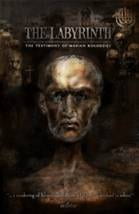 The Labyrinth: The Testimony of Marian Kolodziej is a moving documentary film about Marian Kołodziej, a famous Polish artist and survivor of the Auschwitz concentration camp. The Labyrinth will be airing this month on local Southern California public TV channels and PBS channels: KCET-HD (April 3 and 14), KOCE-50.4 (April 15, 16, 21 and 22), and KVCR-24 San Bernardino (April 23)—check local listings for details.
The Labyrinth: The Testimony of Marian Kolodziej is a moving documentary film about Marian Kołodziej, a famous Polish artist and survivor of the Auschwitz concentration camp. The Labyrinth will be airing this month on local Southern California public TV channels and PBS channels: KCET-HD (April 3 and 14), KOCE-50.4 (April 15, 16, 21 and 22), and KVCR-24 San Bernardino (April 23)—check local listings for details.
Produced by Ron Schmidt and LA-based December 2 Productions, The Labyrinth is an intimate tour of the museum where Mr. Kołodziej’s dramatic images of Holocaust are currently housed. Invited to dozens of festivals throughout the world during the past year, the film has garnered many accolades for its moving portrayal of Mr. Kołodziej and his visual testimony of human suffering during the dark years of World War II, including: Grand Prix (2011 Magnificat Film Festival; Minsk, Belarus); Best Short Documentary (2011 Ventura Film Festival; The Reel Rose Award for Best Short Film (2011 John Paul II Film Festival; Miami, FL); The Redemptive Storytelling Award (2011 Redemptive Film Festival; Newport News, VA); Honorable Mention Award (2011 Los Angeles New Wave International Film Festival); 2012 SIGNIS Award, Spiritual Section, 2012 Dhaka International Film Festival (Dhaka, Bangladesh). The music for the film, composed by Marek Żebrowski, was also recently recognized with the 2011 Telly Award.
[Source: press release]
Rudziński Conference In Warsaw
The centenary of Witold Rudziński’s birth was commemorated with an April 6 conference and a chamber music concert at the Chopin Music University in Warsaw. Witold Rudziński (1913-2004) was a 1936 graduate in Slavic Studies at the Batory University in Wilno. Only a year later he graduated from the Wilno Conservatory, where he studied composition with Tadeusz Szeligowski and piano with Stanisław Szpinalski. During the years 1938-1939 Rudziński studied composition in Paris with Nadia Boulanger and Charles Koechlin. After his return to Poland, he taught theory at the Wilno Conservatory and later moved to Warsaw, where he joined the faculty of the Warsaw Music Academy in 1957.
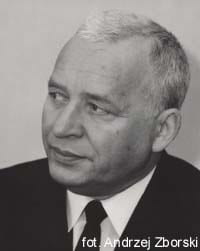 As a composer, Rudziński’s is remembered for his 1962 opera Odprawa posłów greckich, which earned him the Prince Rainier of Monaco Prize, and his symphonic essay Obrazy świętokrzyskie (1965), which won him the Edvard Grieg Competition Prize in Bergen in 1965. He received an honorary doctorate from the Warsaw Academy of Music in 1998.
As a composer, Rudziński’s is remembered for his 1962 opera Odprawa posłów greckich, which earned him the Prince Rainier of Monaco Prize, and his symphonic essay Obrazy świętokrzyskie (1965), which won him the Edvard Grieg Competition Prize in Bergen in 1965. He received an honorary doctorate from the Warsaw Academy of Music in 1998.
Witold Rudziński was also a prolific writer. His book on Stanisław Moniuszko first published in 1954 went through dozens of new editions. He also wrote an extensive volume on Bela Bartok’s music, treaties on rhythm, textbook for music courses as well as books on the history of opera.
[Source: pwm.com.pl]
Warsaw Ghetto Uprising Concert At Nat’l Phil
On April 19, in the concert hall of the National Philharmonic in Warsaw, the 70th anniversary of the Warsaw Ghetto Uprising will be celebrated. Marta Ptaszyńska’s Holocaust Memorial Cantata will be heard during the concert, as well as John Tavener’s Lament for Jerusalem. Performers include: Sinfonia Iuventus Polish Orchestra, the National Philharmonic Choir, Monika Mych-Nowicka – soprano, Dariusz Pietrzykowski – tenor, Adam Kruszewski – baritone, Eliza Kruszczyńska – soprano, Alon HarariI – countertenor and Piotr Gajewski – conductor.
 Ptaszyńska’s Holocaust Memorial Cantata. Lament for all people on Earth for soprano, tenor, baritone, mixed choir and orchestra was written in 1992. The premiere recording was made in 2001 by Sinfonia Varsovia with Lord Yuhudi Menuhin conducting (CD Accord 016). The composer said, “As the Cantata was conceived as an unusually extended prayer, I gave it a contemplative and somber expression, sometimes exalted and solemn, sometimes with a lyrical character, just here and there bringing in fragments marked with more power and drama. The continuous repetition of the words not to forget—sung in English, Hebrew, Yiddish and Polish—have a fundamental significance and are very characteristic of funeral prayers. This recurrent phrase here becomes the driving force in this work. The Cantata consists of ten passages, contained in two parts. The dramatic culmination is placed in accordance with the structure of the poem, in the sixth paragraph, What Happened to Six Million Jews.”
Ptaszyńska’s Holocaust Memorial Cantata. Lament for all people on Earth for soprano, tenor, baritone, mixed choir and orchestra was written in 1992. The premiere recording was made in 2001 by Sinfonia Varsovia with Lord Yuhudi Menuhin conducting (CD Accord 016). The composer said, “As the Cantata was conceived as an unusually extended prayer, I gave it a contemplative and somber expression, sometimes exalted and solemn, sometimes with a lyrical character, just here and there bringing in fragments marked with more power and drama. The continuous repetition of the words not to forget—sung in English, Hebrew, Yiddish and Polish—have a fundamental significance and are very characteristic of funeral prayers. This recurrent phrase here becomes the driving force in this work. The Cantata consists of ten passages, contained in two parts. The dramatic culmination is placed in accordance with the structure of the poem, in the sixth paragraph, What Happened to Six Million Jews.”
Friday, April 19, 2013 | 7:30 pm – concert / 6:30 pm – lecture
70th anniversary of the Warsaw Ghetto Uprising Concert
6:30 pm: pre-concert lecture given by Małgorzata Gąsiorowska (Chamber Hall)
National Philharmonic – Concert Hall
ul. Jasna 5, Warsaw 00-950
[Source: pwm.com.pl]
Marcin Dylla Concert & Masterclass
During March and April, Polish guitarist Marcin Dylla is giving a tour of North America, with recitals covering both coasts. Having already visited California and Arizona in March, Dylla’s tour will culminate in his Carnegie Hall debut on April 11. Presented as part of the D’Addario Performance Series in Carnegie’s Weill Recital Hall, Dylla will perform the works of Rameau, Regondi, Diabelli, Granados, Lindberg, and Manjón with fellow debut guitarist, Lazhar Cherouana.
On April 14 as a part of the John E. Marlow Guitar Series, a solo classical guitar recital by Marcin Dylla will take place at the Westmoreland Congregational Church in Bethesda, MD. His program will include works by Manuel Maria Ponce, Magnus Lindberg, Anton Diabelli, Franz Schubert and Enrique Granados. Concert tickets include a pre-concert lecture by Larry Snitzler, a professor of guitar from George Mason University and veteran presenter for Smithsonian Associates and NPR. The following day, Dylla will perform a masterclass at the George Washington University Department of Music.
Hailed by Washington Post as “among the most gifted guitarists on the planet” Polish guitarist Marcin Dylla is a rare phenomenon in recent history of Classical Guitar. He has earned this position, among others, with an unparalleled number of awards including 19 First Prizes from 1996-2007 at the most important international music competitions around the world. His last triumph was the Gold Medal of the 2007 Guitar Foundation of America International Competition in Los Angeles known as the most prestigious guitar contest in the world followed by tour of over 50 cities in North America, Mexico and Canada during 2008-09 season, live recital video recording for Mel Bay Publications and CD recording for Naxos that reached the Naxos Top 10 Bestselling Albums in September 2008.
His live recital DVD Wawel Royal Castle at Dusk was nominated for 2010 Fryderyk Award (equal to American Grammy) in the category of Solo Classical Music Album of the Year.
Marcin Dylla was born in Chorzów in 1976. He received his first guitar lessons at the Ruda Śląska Music Conservatory in his native Poland. From 1995 to 2000 he studied at the Music Academy of Katowice with Adi Wanda Pałacz. He then completed his studies with Prof. Oscar Ghiglia, Prof. Sonja Prunnbauer and Prof. Carlo Marchione at the Music Academies of Basel (Switzerland), Freiburg (Germany) and Maastricht (The Netherlands), respectively. He is currently a Professor at the Music Academy in Kraków and Katowice.
Thursday, April 11, 2013 | 8 PM
Marcin Dylla Recital in NY
Carnegie Hall, Weill Recital Hall
881 Seventh Avenue, New York, NY 10019
Tickets: 212-247-7800
Saturday, April 13, 2013 | 8 pm
Marcin Dylla Recital in DC
Westmoreland Congregational Church
1 Westmoreland Circle, Bethesda, MD 20816
Tickets: General $25.00, Students $12.50
Sunday, April 14th, at 1-4 pm
Marcin Dylla Masterclass in DC
George Washington University Department of Music, Room B120
21 Street and H Street, NW Washington DC 200052
Other recital dates and cities include: 4/2 – Fredonia, NY; 4/5 – Cleveland, OH; 4/7 – Hamilton, ON, Canada; 4/9 – Kitchener-Waterloo, ON, Canada; 4/18 – Mexico City, Mexico; 4/19 – Miami, FL; 4/25 Quebec City, QC, Canada; and 4/26-28 – Guitare Montréal.
[Sources: press release, marcindylla.com]
Kevin Kenner In Poznań
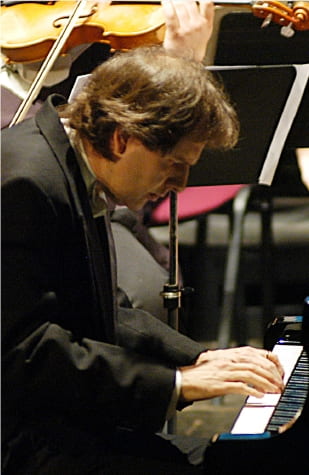 On Sunday, April 14, American pianist Kevin Kenner will present a solo recital at the Mickiewicz University Auditorium in Poznań. This charity performance will benefit the Society for a Better Cure and the Recovery of Hearing, “Lepiej Słyszeć—Better Hearing.” Mr. Kenner’s program will include works by Debussy and Ravel as well as Chopin’s 24 Preludes, Op. 28.
On Sunday, April 14, American pianist Kevin Kenner will present a solo recital at the Mickiewicz University Auditorium in Poznań. This charity performance will benefit the Society for a Better Cure and the Recovery of Hearing, “Lepiej Słyszeć—Better Hearing.” Mr. Kenner’s program will include works by Debussy and Ravel as well as Chopin’s 24 Preludes, Op. 28.
Sunday, April 14 | 6:00 pm
Kevin Kenner in Recital
UAM Concert Hall, ul. Wieniawskiego 1, Poznań, Poland
Tickets & info: www.wieniawski.pl
[Source: wieniawski.pl]
ACME Performs Weinberg, Shostakovich & Górecki In NY
Described by the San Francisco Classical Voice as “flawless urban sophisticates at their finest,” the American Contemporary Music Ensemble (ACME) pays homage to the late, largely unsung Polish composer Mieczysław Weinberg with an elegiac chamber music program that also includes works by Henryk Mikołaj Górecki and Dmitri Shostakovich. This concert will be presented by the Morgan Library and Museum in New York, in cooperation with the Polish Cultural Institute, on April 18 and will feature the following program: Weinberg – Piano Quintet, Op. 18; Górecki – String Quartet No. 3 (select movements); Shostakovich – Piano Trio No. 2 in E minor, Op. 67.
The music of Mieczysław Weinberg (1919-96) is among the twentieth century’s greatest hidden treasures. Born in Poland, Weinberg emigrated to Russia in perilous circumstances. Often seen in the shadow of his close friend Dmitri Shostakovich, who regarded him as one of the most outstanding composers of the day, Weinberg is slowly being rediscovered as a figure of immense significance in the landscape of postmodern classical music.
Weinberg’s musical idiom stylistically mixes traditional and contemporary forms, combining a freely tonal, individual language inspired by Shostakovich with ethnic (Jewish, Polish, Moldovian) influences and a unique sense of form, harmony and color. His prolific output includes 17 string quartets, over 20 large-scale symphonies, numerous sonatas for solo stringed instruments and piano, film-scores, as well as operas, including The Passenger (1968) which has recently received critical praise and attention.
See ACME in concert performing Steve Reich on www.npr.org.
Thursday, April 18, 2013 | 7:30 PM
ACME performs works by Weinberg, Górecki and Shostakovich
The Morgan Library & Museum
225 Madison Avenue, New York, NY
Tickets: $35, $25 for members (Available online)
Tel: (212) 685-0008 ext. 560
[Source: polishculture-nyc.org]
Rafał Bartmiński in D.C.
…His technique seems secure, his production free, his forte passages unforced, his sense of arching line well judged, his stamina amazing. If he keeps it all together, this is a major talent.
[James Sohre, Opera today, 5/11/2011]
The most imposing voice and presence of the whole [Wexford] festival was the giant young tenor Rafal Bartminski, who took the role of Maria’s powerfully connected husband, Waclaw [in Roman Statkowski’s opera, Maria].
[Tom Sutcliffe, Opera Now, 03/2012]
[…] the tall and handsome young Polish tenor Rafal Bartminski as Waclaw, with a ringing Vickers-like top register and an innate musicality at all levels.
[Richard B. Beams, Opera con Brio, Winter 2012]
Rafał Bartmiński, the sensational Polish tenor who captured the hearts of DC audiences a few years ago, returns with an enchanting program of Schubert, Strauss, Marczewski, Mozart, Verdi and Neapolitan songs. He will appear in Washington D.C as a part of the “Embassy Series”—on Wednesday, April 17 at the Embassy of the Republic of Poland, and on Thursday, April 18 at the Embassy of Austria. Mr. Bartmiński will be joined onstage by pianist George Peachey. The concert at the Embassy of Poland is dedicated to the memory of Mrs. Irena Mirecki (1944- 2012).
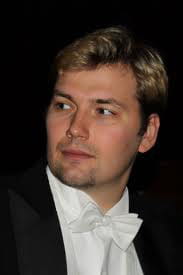 Rafał Bartmiński (b.1977 in Lublin, Poland) graduated from the Music Academy in Katowice where he studied under prof. Eugeniusz Sasiadek. He debuted as Lensky in Eugene Onegin by Peter Tchaikovsky at the Grand Theatre—Polish National Opera in 2002 and, since 2003, he has been continuously cooperating with the Polish National Opera in Warsaw. Along with artists of this theatre he performed in Sadler’s Wells in London, the Opera in Vilnus and at Peralada Festival in Spain and in 2005 he went on tour to Japan performing in Salome by Richard Strauss directed by Martin Ottawa.
Rafał Bartmiński (b.1977 in Lublin, Poland) graduated from the Music Academy in Katowice where he studied under prof. Eugeniusz Sasiadek. He debuted as Lensky in Eugene Onegin by Peter Tchaikovsky at the Grand Theatre—Polish National Opera in 2002 and, since 2003, he has been continuously cooperating with the Polish National Opera in Warsaw. Along with artists of this theatre he performed in Sadler’s Wells in London, the Opera in Vilnus and at Peralada Festival in Spain and in 2005 he went on tour to Japan performing in Salome by Richard Strauss directed by Martin Ottawa.
He works with majority of the best Polish orchestras and philharmonics including the Warsaw Philharmonic, National Polish Radio Symphony Orchestra in Katowice, Polish Radio Orchestra, Beethoven Academy Orchestra, Sinfonia Varsovia, Filharmonia Krakowska, Sinfonia Viva.
Rafal Bartminski also appeared in the TV theatre production of Sesja castingowa [Casting session], directed by Krzysztof Zanussi.
Wednesday, April 17, 2013 | 7.30 pm
Rafał Bartmiński in Recital
Embassy of the Republic of Poland
2640 16th Street, NW, Washington DC 20009
Tickets: $85 incl. traditional Polish buffet/dessert/wine
Thursday, April 18, 2013 | 7.30 pm
Rafał Bartmiński in Recital
Embassy of Austria
3524 International Drive, NW, Washington, DC 20008
Tickets: $65 incl. reception
[Sources: press release, embassyseries.org]
Awards
Dąbrowski Honored With Gloria Artis
Wiesław Dąbrowski—the owner of Partus Arts Agency as well as the director of the AVE ARTE Foundation in Warsaw—was recognized with the Gloria Artis medal, given to individuals with exceptional achievements in the area of promoting, saving, and strengthening of Polish culture. In a March 11 ceremony at the Ministry of Culture and National Heritage in Warsaw, Mr. Dabrowski was decorated by the Undersecretary of State, Małgorzata Omiłowska.
Besides his many activities connected to the promotion of Polish culture, Mr. Dąbrowski is also a noted documentary filmmaker who has produced several films about prominent Polish musicians. His 2007 film Henryk Wars-pieśniarz Warszawy [Henryk Wars—the Bard of Warsaw], illustrates the life and career of Poland’s most popular composer of film, stage and—of recently discovered—symphonic music. It garnered several awards and was widely shown on Polish TV.
Mr. Dąbrowski is currently working on a documentary about Ignacy Jan Paderewski, with plans for an American premiere of the film during the Paderewski Festival in Paso Robles in November 2013.
[Sources: press release, partus.pl]
Golden Fryderyk Award For Ekier
On April 25, 2013, prof. Jan Ekier will receive a Golden Fryderyk for lifetime achievement during the Gala Ceremony of the 2013 Fryderyk Awards. The Polish equivalent of the American Grammys, the Fryderyk Awards were presented for the first time on March 19, 1995 in the Polish Theatre in Warsaw. In the category of classical music, Golden Fryderyks have been awarded to: Władysław Szpilman, Antoni Wit, Krystian Zimerman, Ewa Michnik, Henryk Mikołaj Górecki, Krzysztof Penderecki, Jerzy Maksymiuk and Wojciech Kilar.
 Jan Ekier—pianist, composer, editor of musical works and teacher—was born in Krakow on August 29th, 1913. He studied piano and composition with O. Stolfowa and B. Rizzi. In the years 1932-1934 he studied musicology at the Jagiellonian University under prof. Z. Jachimecki. His piano studies in the years 1934-1937 (Prof. Zb. Drzewiecki) and composition in the years 1934-1939 (Prof. K. Sikorski) took place at the National Conservatory of Music in Warsaw. In 1936 he was awarded third prize in the Polish Music Publishing Society Composition Competition for Highland Suite for orchestra. At the III Fryderyk Chopin International Piano Competition in Warsaw in 1937, he received 8th place. During the occupation Ekier learned to play the organ with B. Rutkowski at the Staatliche Musikschule in Warschau, realising the pre-war conservatory program. He was one of the most active musicians of the militant underground. After the war he continued his concert career. He ceased composing in 1956, his last piece being the soundtrack to the animated film Dwie Dorotki.
Jan Ekier—pianist, composer, editor of musical works and teacher—was born in Krakow on August 29th, 1913. He studied piano and composition with O. Stolfowa and B. Rizzi. In the years 1932-1934 he studied musicology at the Jagiellonian University under prof. Z. Jachimecki. His piano studies in the years 1934-1937 (Prof. Zb. Drzewiecki) and composition in the years 1934-1939 (Prof. K. Sikorski) took place at the National Conservatory of Music in Warsaw. In 1936 he was awarded third prize in the Polish Music Publishing Society Composition Competition for Highland Suite for orchestra. At the III Fryderyk Chopin International Piano Competition in Warsaw in 1937, he received 8th place. During the occupation Ekier learned to play the organ with B. Rutkowski at the Staatliche Musikschule in Warschau, realising the pre-war conservatory program. He was one of the most active musicians of the militant underground. After the war he continued his concert career. He ceased composing in 1956, his last piece being the soundtrack to the animated film Dwie Dorotki.
Jan Ekier undertook pedagogical activities when he was still in Krakow. In the year 1932/33 he taught solfege at the Wł. Żeleński School of Music, then thirteen years later (1946-1947) he led the piano class at the PSSM in Lublin. In the year 1947/48 he served as rector of the Academy of Music in Sopot. In the years 1953-2000 he taught piano at the State Higher School of Music in Warsaw (later AM, now UMFC); he was the head of the Piano Department in the years 1964-1972 and 1974-2000. His many students include P. Paleczny, B. Kawalla, A. Paleta-Bugaj, A. Jastrzębska-Quinn, T. Takahashi, I. Wyrzykowska-Mondelska, M. Szmyd-Dormus, A. Bereżyński. After 1960, Jan Ekier led numerous master classes, including in Germany, France, Italy, Netherlands, Brazil, Japan and China.
He began his editorial activities shortly after the war. Under the auspices of PWM’s Pedagogiczna Biblioteka Fortepianowa series of scores, in collaboration with Zb. Drzewiecki, J. Hoffman and A. Rieger he prepared books of scales and arpeggios and works by J.S. Bach for children and young people, then he independently arranged, amongst other pieces, the Inventions, Italian Concerto, Chromatic Fantasy And Fugue, and the French Suites. In 1959 he became editor-in-chief of the National Edition of the Works of Fryderyk Chopin. The first volume – Ballads appeared in 1967, and now the series has been completed.
Since 1949, with the exception of the V International Chopin Piano Competition, Jan Ekier was a judge for all the post-war contests. In 1985, 1990, 1995 – he served as chairman of the jury in 2000, 2005 and 2010 he was honorary chairman of the jury. Ekier was frequently invited to participate in juries of international piano competitions including Budapest (1956), Leipzig (1964), Bolzano (1975, 1977), Geneva (1975, 1986), Munich (1977) and Tel Aviv (1980) among others.
Jan Ekier has been awarded for his outstanding artistic and scientific achievements many times – in 1995, he was awarded the title of Doctor Honoris Causa by the Fryderyk Chopin Academy of Music in Warsaw. In 1998, he was awarded the Chopin Prize by the International F. Chopin Foundation. In 2000, Jan Ekier was awarded the Commander’s Cross with Star of the Order of Polonia Restituta. In 2005 he received the prize of the Minister of Culture and National Heritage – the Gold Medal “for services to culture Gloria Artis”. Two years later in 2007 was awarded the Cyprian Kamil Norwid “Lifetime’s Work” award from the Mazowieckie voivodship government. In 2010, Jan Ekier was awarded the Order of White Eagle.
[Source: pwm.com.pl]
Lutosławski Year 2013
Lutosławski Featured At Young Aukso
 Young musicians (16-30) will participate in a week-long session of orchestra workshops, held by musicians of the AUKSO Chamber Orchestra from April 19-26. The program will end with a pair of concerts featuring British cellist Jamie Walton, performing Lutosławski’s Grave and Cello Concerto as well as Dvořak’s Eighth Symphony with the “Young AUKSO” participants.
Young musicians (16-30) will participate in a week-long session of orchestra workshops, held by musicians of the AUKSO Chamber Orchestra from April 19-26. The program will end with a pair of concerts featuring British cellist Jamie Walton, performing Lutosławski’s Grave and Cello Concerto as well as Dvořak’s Eighth Symphony with the “Young AUKSO” participants.
A truly unprecedented feature of these workshops is that the organizers will cover all costs associated with participating in the program, including travel, accommodations, three meals daily, and even some pocket money (the exact amount will depend on the number of participating young musicians). All aspiring orchestral players will receive certificates and will be admitted free of charge to all concerts held during the Gorczycki Music Festival. In addition, they will be invited to lectures covering Lutosławski’s life and music given by Krzysztof Meyer and Danuta Gwizdalanka, press conferences and other meetings with world-famous musicians.
The organizers of this program include the Gorczycki Society (gorczycki.pl) and the AUKSO Orchestra. The project is financed by the Ministry of Culture and National Heritage program “Lutosławski 2013-Promesa” as well as the Institute of Music and Dance, the City of Bytom, and the Marshall’s Office of the Province of Silesia.
[Source: polmic.pl]
Mutter Plays Lutosławski at CSUN
Concert Review by Gary Fitelberg
Lutosławski’s Partita was featured at a concert with musical artists violinist Anne-Sophie Mutter and pianist Lambert Orkis at the CSUN Valley Performing Arts Center on March 6, 2012. The audience went absolutely wild at her splendid performance of the pieces on the concert program.
The concert program was one of variety and musical interest. On the program were the following works for violin and piano: Mozart’s Violin Sonata No. 27 in G major for violin and piano, K.379; Schubert’s Fantasy in C major, D.934, Lutosławski’s Partita and Saint-Saens’ Violin Sonata No. 1 in D minor.
Here is what composer Witold Lutosławski had to say about the composition in November 1984:
I composed Partita for violin and piano in the autumn of 1984 at the request of St Paul Chamber Orchestra for Pinchas Zukerman and Marc Neikrug.
The work consists for five movements. Of these the main movements are the first (allegro guisto), the third (largo) and the fifth (presto). The second and fourth are but short interludes to be played ad libitum. A short ad libitum section also appears before the end of the last movement.
The three major movements follow, rhythmically at least, the tradition of pre-classical (18th century) keyboard music. This, however, is no more than an allusion. Harmonically and melodically, Partita clearly belongs to the same group of recent compositions as Symphony No.3 and Chain 1.
Pinchas Zukerman and Marc Neikrug gave the first performance on 18 January 1985 at the Ordway Music Theatre, Saint Paul, Minnesota. The orchestral version (1988) was written for and dedicated to Anne-Sophie Mutter. She gave the first performance on 10 January 1990 in Munich with the Munich Philharmonic Orchestra, conducted by Lutoslawski.
The famous violinist Midori Goto—the Jascha Heifetz Chair and Chair of the Strings Department at the USC Thornton School of Music—analyzed Lutosławski’s Partita as follows:
Partita by Lutosławski is a masterpiece for violin and piano. It contains everything one can imagine in a deeply-moving musical work: the life within this music is so powerful that both to play it and to listen to it is an overwhelming experience.
Lutosławski composed Partita in 1984 on a commission from the St. Paul Chamber Orchestra on behalf of its then Music Director, violinist Pinchas Zukerman, and pianist Marc Neikrug. The composer himself commented that it “belongs with my most important compositions.” Partita was originally intended as a double concerto for violin and piano with orchestra but, because of time constraints, it was completed in its current version. The work was premiered in January 1985 in St. Paul, Minnesota by the Zukerman/Neikrug duo and quickly became a staple work of the contemporary genre. It was further popularized when the composer made a version for violin and orchestra at the request of Anne Sophie Mutter in 1988.
Trained both as a pianist and violinist, Lutosławski had a musical education that was greatly challenged by the political situation in his country. For some years, particularly between 1949 and 1955, it was not possible to present his experimental compositional works to the public but after 1956, he succeeded in incorporating such non-traditional techniques as harmonic aggregates, and aleatoric writing in his string quartet, Symphony No. 2, Trois poemes d’Henri Michaux and Livre pour Orchestre. In the remaining 14 years of his life, Lutosławski’s style began to look more to the past and he incorporated more classical elements within his experimental techniques.
In the 1980s he composed Partita and two other works for the violin, an instrument he had not written for in over 30 years. At the time of his death in 1994, he was working on yet another major work for the instrument, a Violin Concerto.
Partita is in three main parts tied together by two semi-improvisatory ad libitum sections written in the aleatory technique. There are no remarkable gaps in between the portions. Throughout the entire work, passion and drama preside, and the uses of half- step motions outside a tonal context, repeated notes, and cross rhythms abound. However, the result is not a heavy cluster of sounds, atonal chords, and rhythmic confusion but fabulously independent lines that meet and part with both conviction and sensitivity.
The Allegro giusto opens with an irresistible sense of momentum, and both the piano and the violin set the tone for the mostly urgent character. Interspersed within the movement are haunting moments of song and poignant mystery, partially conveyed with uses of intentional non vibrato, glissandi, and quarter-tones.
The Ad libitum that connects the Allegro giusto and the Largo is the second movement. Here, like the other ad libitum sections recurring later in the piece, is a fine example of an aleatoric passage, where the composer has specifically instructed the players that the “violin and piano parts should not be coordinated in any way.” As such, the performers each execute their parts as if playing an improvisatory cadenza. The intensity of the music continues to heighten, only to climax at the beginning of the Largo.
The emotional core of the work is indeed in this Largo movement; the inner strength of the music continues to grow while there is an added sense of the inevitable, which perhaps resembles the dynamic force of life. Another Ad libitum follows the Largo, preparing the way for the last movement where rhythmic irregularities create inner jauntiness and energy. The short middle section, which is reminiscent of Szymanowski’s violin music, has memorable set of harmonics on the violin, as well as the simmering sound color of the cantabile played at the highest possible register. The final Ad libitum immediately precedes the coda section of the movement, which propels the work to a spectacular ending.
Thirteen years after she gave the first performance of the orchestral version of this piece, Mutter performs the piece much more maturely and magnificently. Mutter played the piece like she owns it (and she does quite well) to absolute perfection.
Witold Lutosławski, who centenary anniversary is celebrated this year, was born on January 13, 1913 in Poland to a musical and distinguished family. He attended Warsaw Conservatory and later went to Paris for further studies. He also studied mathematics for two years at the University of Warsaw.
While attending the Warsaw Conservatory, he wrote a piano sonata (1934), and soon after graduation he completed a major work for orchestra—the Symphonic Variations—which was premiered by the Polish National Radio Symphony Orchestra (NOSPR). During the war, Lutosławski served in the Polish army as chief of a field radio station. After the war, be became active in the musical life of Poland, by becoming an important member of the Polish Composers’ Union and of the Warsaw Autumn music festivals. Lutosławski also served with the Radio Council and Polish Musical Publications (PWM). Lutosławski first attracted international attention with his Symphony No. 1, dedicated to prominent Polish composer-conductor Grzegorz Fitelberg, which was premiered on April 6, 1948. Both the Symphonic Variations and Symphony No. 1, as well as other orchestral compositions by Lutosławski, were introduced internationally under the baton of his close colleague and friend maestro Fitelberg, “The Ambassador of Polish Music.”
The Cal State University Northridge Valley Performing Arts Center (CSUN VPAC) is a wonderful concert hall with excellent acoustics, and is perhaps the best kept secret and treasure in Los Angeles. Hopefully this will change soon, as musical artists and stars bring such exciting concert programs to the hall, and it will be filled to capacity as it should be during such great performances. All in all it was a most beautiful concert—an evening of wonderful music for violin and piano with the two superbly talented musical artists, violinist Anne-Sophie Mutter and her accompanist Lambert Orkis.
Gary Fitelberg is a musicologist, music critic and historian specializing in Polish music and musicians
[Sources: schirmer.com, gotomidori.com]
New Publications
New Title On Tadeusz Baird
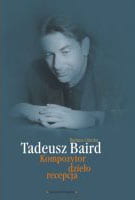 Tadeusz Baird. Kompozytor, dzieło, recepcja
Tadeusz Baird. Kompozytor, dzieło, recepcja
[Tadeusz Baird. The Composer, His Works and Reception]
By Barbara Literska
University of Zielona Góra Publishing House
Hardbound, 766 pp.
ISBN 978-83-7842-041-5
Over thirty years after his death, Tadeusz Baird (1928-1981) and his music has been largely forgotten. In spite of his relatively short lifespan, Baird wrote 54 original compositions, provided music for 63 theatre plays and scores for 40 films. Barbara Literska, the author of this extensive and timely study of Baird’s music currently serves as Assistant Dean of the Art Department at the University of Zielona Góra. A 1992 graduate of the Lipiński Music Academy in Wrocław with majors in composition, conducting, music theory and music therapy, Dr. Literska has written about the reception of Frederic Chopin’s music and authored a book about the 19th century transcriptions of Chopin’s works, published by Musica Iagellonica in 2004.
[Source: ow.uz.zgora.pl]
The Complete Wieniawski
 The Wieniawski Music Society has recently published two new volumes of the Complete Works by Henryk Wieniawski. Volume 12 includes Souvenir de Posen pour violon avec accompagnement de piano, Op. 3, written by the 19-year old Wieniawski shortly before the concerts he gave in Poznań in early July 1854. Volume 4a includes Wieniawski’s 2me Polonaise Brillante pour le violon avec accompagnement d’orchestre, Op. 21. This well-known work was written in early 1870, however it isn’t known whether the violin and piano version preceded the version for violin and orchestra. Wieniawski premiered the work with orchestra at a concert in St. Petersburg on March 17, 1870.
The Wieniawski Music Society has recently published two new volumes of the Complete Works by Henryk Wieniawski. Volume 12 includes Souvenir de Posen pour violon avec accompagnement de piano, Op. 3, written by the 19-year old Wieniawski shortly before the concerts he gave in Poznań in early July 1854. Volume 4a includes Wieniawski’s 2me Polonaise Brillante pour le violon avec accompagnement d’orchestre, Op. 21. This well-known work was written in early 1870, however it isn’t known whether the violin and piano version preceded the version for violin and orchestra. Wieniawski premiered the work with orchestra at a concert in St. Petersburg on March 17, 1870.
As with the entire series, a number of scholars have worked on this edition, providing a critical review of sources, historical commentary and additional remarks, as well as editing of the solo violin part for performance. The volumes already published are available in music bookstores and can be ordered directly from the PWM website. The Wieniawski Society website also has links, descriptions of the goals of the Complete Works edition and lists of the volumes available for purchase.
[Source: wieniawski.pl]
Festivals
‘Poznań Musical Spring’ Contemporary Music Festival
 The 42nd edition of the Poznań Musical Spring Festival will be held from April 10-13, 2013. Eleven concerts have been planned—including nine world premieres—with such prestigious ensembles as Amadeus Chamber Orchestra led by Anna Mróz, pianist Andrzej Tatarski, the Lutosławski Piano Duo, flutist Erik Drescher, and the Ensemble Aleph, among others. This four-day Festival also features a number of works by mainstream composers of the modern era, including Lutosławski, Górecki, Penderecki, Szeligowski as well as Kagel, Xenakis, and others. The “Spring of the Young”—a series of concerts for young audiences performed by young performers—is also scheduled for this year’s Festival. All Festival concerts are free and open to the public.
The 42nd edition of the Poznań Musical Spring Festival will be held from April 10-13, 2013. Eleven concerts have been planned—including nine world premieres—with such prestigious ensembles as Amadeus Chamber Orchestra led by Anna Mróz, pianist Andrzej Tatarski, the Lutosławski Piano Duo, flutist Erik Drescher, and the Ensemble Aleph, among others. This four-day Festival also features a number of works by mainstream composers of the modern era, including Lutosławski, Górecki, Penderecki, Szeligowski as well as Kagel, Xenakis, and others. The “Spring of the Young”—a series of concerts for young audiences performed by young performers—is also scheduled for this year’s Festival. All Festival concerts are free and open to the public.
As is the tradition of this festival, several new works will be given their world premieres over the course of the Festival in various venues at the Adam Mickiewicz University in Poznań. During the inaugural concert on April 10, Barbara Kaszuba’s Pour Amadeus for string orchestra (2013)* and Zbigniew Kozub’s Concerto for viola and string orchestra (2011) will be premiered by the Polish Radio Amadeus Chamber Orchestra, Anna Mróz – cond., in the Concert Hall. Katarzyna Taborowska’s Racing sounds for prepared double bass and electronics (2013) and Rafał Zapała’s Cleaner for double bass and live electronics (2013) will have their premiere on April 11 in Błękitna Hall, performed by bassist Mateusz Loska with live electronics by Rafał Zapała.
On April 12, there will be two concerts at UAM featuring several premieres. During the first concert at 5:00 p.m. in the New Hall, Nicolaus A. Huber’s SISTER SOUND for glissando flute and gongs (2012) and Lidia Zielińska’s 53 oddechy for glissando flute, multi-channel tape and live electronics (2013 – commissioned by the Polish Composers’ Union with support from the Ministry of Culture and National Heritage and IMiT) will be premiered by Erik Drescher – glissando flute, Lidia Zielińska – live electronics and spatial diffusion, and Rafał Zapała – live electronics. Next, at 7:00 p.m. in the New Hall, the Lutosławski Piano Duo of Emilia Sitarz and Bartłomiej Wąsik will premiere Janusz Stalmierski’s Grota for two pianos (2013) and Marcel Chyrzyński’s Reflection No. 3 for two pianos (2013 – Festival Commission). Finally, at 9:30 p.m. in the Concert Hall, the Jubilee Concert honoring composers Henryk Mikołaj Górecki, Krzysztof Penderecki and Krzysztof Meyer will be celebrated with a premiere of Michał Dobrzyński’s String Quartet No. 2 “Orestes” (2013) by the Baltic Neopolis Quartet.
* Performances and world premieres of works by Barbara Kaszuba are co-sponsored by the Composer in Residence Program of the Institute of Music and Dance [IMiT].
[Source: wiosnamuzyczna.pl]
Performances
Paderewski Music Society Benefit Concert
Concert Review by Gary Fitelberg
The Paderewski Music Society of Los Angeles sponsored a beautiful concert to raise funds for the American Paderewski Piano Competition to be held May 21-26, 2013. The theme Chopin 2: A Birthday Tribute was held at Zipper Hall, Colburn School of Music on March 2, 2013.
The opening piece—Chopin’s Polonaise in A-flat Major, Op. 53—featured Polish pianist Wojciech Kocyan who played the piece magnificently and with precision. Kocyan grew up in Katowice, Poland where he attended the Karol Szymanowski Music Academy. After a brief introduction by actress Jane Kaczmarek, a short play entitled The Old Clock based upon Paderewski’s memoirs was presented, with actress Jane Kaczmarek, actor Marek Probosz, and pianist Wojciech Kocyan playing the part of “Mr. Paderewski” dramatically and realistically. One would have thought the maestro was brought back to life. This special tribute to Paderewski was performed perfectly and was a glimpse into Paderewski’s place in history and his legacy of music. This was followed by a performance by master pianist John Perry who performed the Impromptu, Op. 90, Nos. 1 & 4 by Schubert to perfection. Perry is professor emeritus at the USC Thornton School of Music and professor of piano at the Colburn Conservatory of Music in Los Angeles.
After a brief intermission, the audience was charmed and delighted by another pianist, Dmitry Rachmanov, playing Chopin’s Nocturne, Op. 27, No. 1 as well as the Etude, Op. 10, No. 4 most masterfully. Next, Gloria Campener—a prizewinner of the 1st American Paderewski Piano Competition (2010), in which she also received the ‘’Paderewski’ and ‘Chopin’ Best Performance Awards—captured the audience’s heart with her charm, finesse and grace. Ms. Campener played Shubert’s Impromptu, Op. 142, No. 3, Chopin’s Prelude Op. 45, Rachmoninoff’s Moments Musicaux, Op. 10, Nos. 2,3 & 4 as well as Debussy’s “Clair de Lune” from Suite bergamesque and L’Isle joyeuse.
Completing the concert program was the very creative Homage to Chopin played by Polish pianists and scholars Michael and Priscilla Pawlicki, as the entire audience joined in singing Happy Birthday to Chopin first in English then Polish. What a wonderful evening in special tribute to the prominent Polish pianists Chopin and Paderewski.
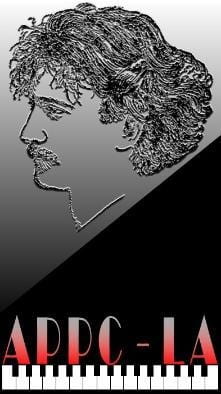 The 2nd American Paderewski Piano Competition is scheduled to take place at the Colburn School of Music, Los Angeles from May 21-26, 2013. Competitors of all nationalities between the ages of 16 and 32 will compete for a First Prize of $5,000, a Second Prize of $2,500 and Third prize of $1,000. Additional special prizes and concerts in Poland and USA during the 2014 and 2015 seasons are scheduled. Also, selected finalists may be invited to participate in the IX Paderewski International Piano Competition during November 2013 in Poland. Airfare to Bydgoszcz, Poland will be provided to two of the selected pianists in the local L.A. competition.
The 2nd American Paderewski Piano Competition is scheduled to take place at the Colburn School of Music, Los Angeles from May 21-26, 2013. Competitors of all nationalities between the ages of 16 and 32 will compete for a First Prize of $5,000, a Second Prize of $2,500 and Third prize of $1,000. Additional special prizes and concerts in Poland and USA during the 2014 and 2015 seasons are scheduled. Also, selected finalists may be invited to participate in the IX Paderewski International Piano Competition during November 2013 in Poland. Airfare to Bydgoszcz, Poland will be provided to two of the selected pianists in the local L.A. competition.
Certain stages of the American Paderewski Piano Competition will be open to the public in Thayer Hall at the Colburn School of Music in Los Angeles—visit www.ijpaderewski.org for details.
Gary Fitelberg is a musicologist, music critic and historian specializing in Polish music and musicians.
[Sources: ijpaderewski.org, konkurspaderewskiego.pl]
Discography
Plowright, Borowicz Perform Zarzycki & Żeleński
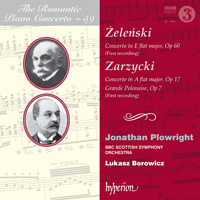 Zarzycki & Zelenski: Piano Concertos
Zarzycki & Zelenski: Piano Concertos
Władysław Żeleński (1837-1921) – Piano Concerto in E flat major Op 60; Aleksander Zarzycki (1834-1895) – Piano Concerto in A flat major Op 17, and Grande Polonaise in E flat major Op 7
Jonathan Plowright (piano); BBC Scottish Symphony Orchestra; Łukasz Borowicz (conductor)
Hyperion CDA676958 [April 2013]
The latest in Hyperion Records’ Romantic Piano Concerto series, it is British pianist Jonathan Plowright’s third in the series (which has 59 volumes) and his eleventh CD for this major independent UK label. The album continues Plowright’s passion for the neglected Polish Romantic repertoire, for which he has become so renowned and respected, and highlights Łukasz Borowicz as one of the most promising conductors of his generation.
Plowright has previously championed the music of Żeleński’s chamber music (Hyperion CDA67905); now he and Borowicz present Żeleński’s Piano Concerto in E flat major, which was written in 1903 and dedicated to the young Ignacy Friedman, who gave the premiere the following year. A Piano Concerto in A flat major by Aleksander Zarzycki is also included, plus his barnstorming Grande Polonaise, an outrageous masterpiece which is unknown even in specialist piano circles.
According to the CD liner notes by Adrian Thomas (© 2013):
Aside from Chopin’s two examples from 1829–30, the Polish piano concerto in the nineteenth and early twentieth centuries remains a largely unfamiliar repertoire, even in Poland. Most were never published, and the few that were usually appeared only in piano reductions. Among the exceptions was the piano concerto (1889) by Ignacy Jan Paderewski, which has been recorded a number of times (it was included on the first volume of Hyperion’s Romantic Piano Concerto series). The piano concertos by Sigismond Stojowski (1890 and 1910) and Henryk Melcer-Szczawinski (1892–4 and 1898) are more recent rediscoveries also available in this series. This new recording breaks further ground by introducing three works for piano and orchestra that have gathered dust on library shelves for over a century.
Continue reading on the Hyperion Records website.
[Sources: press release, jonathanplowright.com, hyperion-records.co.uk, predanvoigt.com]
CD Release for Jan Jarczyk
 Jan Jarczyk: Full Circle
Jan Jarczyk: Full Circle
Jan Jarczyk Trio: Jan Jarczyk – piano / Fraser Hollins – double bass / Jim Doxas – drums
Pianist, composer and pedagogue, Jan Jarczyk is one of the major figures on the Montréal jazz scene. Born in Poland, Jarczyk has lived and taught in North America since 1977. He is the author of numerous original projects, several of which have received such prestigious recognition as the Felix Award (1996 – “Things To Look For”) and Grammy Award (2011 – “Meeting of the Spirits”). His latest album, Full Circle, has been released and will be promoted at several upcoming concerts in Montréal.
April 17, 2013 | 9:00 pm
Jan Jarczyk Trio – Album Release
Dièse Onze Jazz & Restaurant
4115A Rue Saint-Denis, Montréal, QC, Canada
April 21, 2013 | 8:00 PM
Jan Jarczyk Trio & Gary Schwartz – guitar
Cabaret du Mile-End
5240, avenue du Parc, Montréal, (Québec)
Info: www.lalignebleue.ca
[Source: press release, dieseonze.com, janjarczyk.com]
Now Available on CD Baby
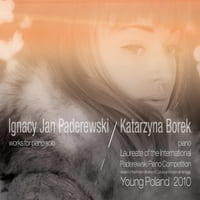 Paderewski – Works for Piano Solo
Paderewski – Works for Piano Solo
Menuet in G Major Op. 14; Burlesque Op. 14; Legend in A Flat Major Op. 16; Polonaise in B Major Op. 9; Nocturne in B Flat Major Op. 16; Variations and Fugue in E Flat Minor Nos.1-21
Katarzyna Borek, piano
CD Baby.com
In 2010 Katarzyna Borek received an award from the Ministry of Culture and National Heritage’s “Young Poland” for recording this album, dedicated entirely to works by Ignacy Jan Paderewski.
[Sources: press release, cdbaby.com]
Anniversaries
Born This Month
-
1 April 1872 – Tadeusz JOTEYKO, composer (d. 20 August 1932)
-
3 April 1904 – Maria WILKOMIRSKA, pianist professor of piano in Lodz and Warsaw
-
4 April 1941 – Aleksander GLINKOWSKI, composer active in Katowice (d. 1991)
-
8 April 1890 – Zbigniew DRZEWIECKI, pianist and professor of piano, organizer of Chopin Competitions, president of Chopin Society
-
9 April 1880 – Stanislaw LIPSKI, pianist and composer (d. 6 October 1937)
-
9 April 1951 – Andrzej KRZANOWSKI, composer (d. 1990)
-
13 April 1890 – Ludwik BRONARSKI, musicologist (d. 1975)
-
18 April 1903 – Tadeusz KWIECINSKI, composer (d. 11 July 1960)
-
21 April 1907 – Antoni SZALOWSKI, composer (d. 21 March 1973)
-
29 April 1880 – Adolf CHYBIŃSKI, musicologist, professor of universities in Lwów and Pozńan (d. 31 October 1952)
Died This Month
-
5 April 1935 – Emil MŁYNARSKI, conductor, violinist, composer, music director of the Warsaw Opera, (b. 18 August 1870)
-
6 April 2006 – Augustyn BLOCH, composer and organist, vice-President of ZKP [Polish Composesrs’ Union] from 1983-1987 (b. 13 August 1929)
-
9 April 1944 – Boleslaw WALLEK-WALEWSKI, conductor and composer, active in Krakow, Warsaw and Pozńan (b. 23 January 1885)
-
11 April 1938 – Bronislawa WÓJCIK-KEUPRULIAN, musicologist, professor of Lwów University, specialist in Chopin and Armenian music (b. 6 August 1890)
-
12 April 1956 – Tadeusz STRUMIŁŁO, musicologist, professor of Jagiellonian University, with Z. Szweykowski discovered over 200 compositions of 18th, 19th c. (b. 10 July 1929)
-
13 April 2007 – Andrzej KURYLEWICZ, composer and conductor, best known for jazz but also wrote classical works and music for film, TV, and theather (b. 24 Nov 1932)
-
15 April 1945 – Feliks WRÓBEL, composer and music theorist (b. 15 May 1894)
-
18 April 1854 – Józef ELSNER, composer, founder of Warsaw Conservatory, teacher of Chopin (b. 1 June 1769)
-
18 April 2006 – Maria DZIEWULSKA, composer, music theoretician and dedicated educator (b. 1 June 1909)
-
24 April 1845 – Anna WOLKOW-STANIUKIEWICZ, soprano, singer of Warsaw Opera (b. 26 August 1808)
-
25 April 1951 – Jerzy FITELBERG, composer, son of conductor Grzegorz, since 1933 lived in Paris, 1940 in New York (b. 20 May 1903)
-
28 April 1928 – Henryk MELCER-SZCZAWINSKI, pianist, teacher, conductor, professor and chair of the Warsaw Conservatory of Music (b. 21 September 1869)
-
30 April 1998 – Roman MACIEJEWSKI, composer, pianist (b. 28 February 1910)
